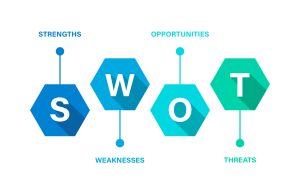A snapshot of Commercial awareness in three days… Future City Lawyers come to City Law School
We asked Denis Viskovich from Future City Lawyers to come along and coach 30 of our students in the much-misunderstood area of Commercial Awareness. Demand was high, and we needed to select from a large number of applicants. One of the successful students, Danielle Rodriguez, who is studying on the Graduate Entry LLB, tells us all about her participation…
Did you know that interviewers for major law firms can ask you what the FTSE 100 Index is at, and decide whether or not to proceed with the interview based on your answer? Luckily, I learned about the FTSE while attending the Commercial Awareness introductory course by Future City Lawyers. And if you are looking to increase your commercial awareness, this course is for you. As for the course structure, it was offered via Zoom and unfolded over three days with two sessions per day.
In the first session, we quickly learned that our participation was expected and that we would not be praised for mediocre responses. The presenter, Denis Viskovich (the founder of Future City Lawyers), referred to this method as an ‘ice-water bucket over the head moment’ or a rude awakening where we would be pushed to only provide answers that would impress a Partner in an interview setting. First, we learned about why commercial awareness is pertinent when entering any training contract assessment centre. Next, we were taught the risks which typically occur in a commercial transaction and how to prioritise those risks for a client. Denis was able to weave a number of case studies into the course seamlessly; after he taught us a particular concept, we were given a fact set and a task and then put into breakout rooms to critically apply the concept we were taught and discuss our responses. After 10 minutes in the breakout room, we were required to present our recommendations to the class subject to constructive criticism from Denis. He wanted each one of us to excel in an interview setting and did not settle for anything less.
In the second session, we learned about macroeconomics or how the overall market behaves. We covered topics such as recession, fiscal policy and inflation. Once again, we were given a case study for practical application purposes. Each breakout session was with different students, so there was always a different perspective on the case study. The third session was all about money. Within an hour, Denis taught us about banking, debt financing and Eurobonds which set us up for a more complex case study. The case studies easily aggregated, where we could draw from knowledge we picked up in previous sessions to make our position stronger.
To finish the second day, we learned about accounting in the fourth session. Denis demystified the financial ratios that corporate lawyers are expected to be familiar with and explained why it is important for us to understand financial statements. The case study permitted us to employ our recently acquired knowledge of financial ratios along with SWOT and PESTLE analysis that we also learned earlier in the session.
On the last day, we started by learning about mergers and acquisitions. Denis began by going over the various types of business structures and even outlined how the stock market functions (which had always been an enigma to me before this course). The case study explored a cinema business that suffered heavily from the effects of the pandemic and was in the position to merge with a popular coffee shop. One of the business partners wanted to pursue debt financing, while the other partner believed that launching an IPO was the best for their survival, and we were able to use what we learned to highlight the advantages and disadvantages of both approaches.
During the break on the final day, we discussed business etiquette for interviews and how important it is to be polite to everyone in the law firm including secretaries and cleaning staff. We also discussed how to respond to a Partner asking whether you have any other questions at the end of an interview. The answer to this question as well as proper business etiquette will set aside a stellar candidate, and this course equipped us with both of these tools.
In the last session, we learned about insolvency by first delving into microeconomics where poor management of these issues can explain why some businesses fail. The first case study in this session looked at a gaming console manufacturer that was losing market share, and had a high chance of becoming insolvent. This gave us the opportunity to provide recommendations drawing from measures on the microeconomic level. Next, we learned about the insolvency process including the pre-steps businesses can take before liquidation. This culminating case study enabled us to apply all of the knowledge we gained by identifying legal and commercial risks, contemplating debt financing and a potential acquisition. The course solidified my interest in taking commercial law modules next year and gave me the fundamental understanding I need to excel in those modules. Thank you Future City Lawyers!
Danielle is a Canadian international student at City Law School. It has been her ambition to attend law school since before her undergraduate degree in Forensic Psychology, but she took time off before law school to gain work experience. She is currently a Senior Officer for the Canada Revenue Agency, specialising in tax and benefits programmes for 5 years. In September, she will start her final year of the Graduate Entry LLB, after which she intends on becoming legal counsel for the Canadian government, specialising in tax law.



